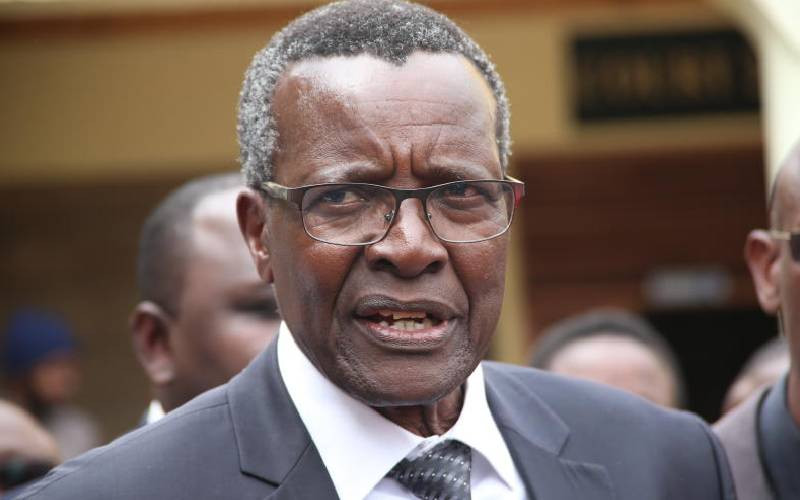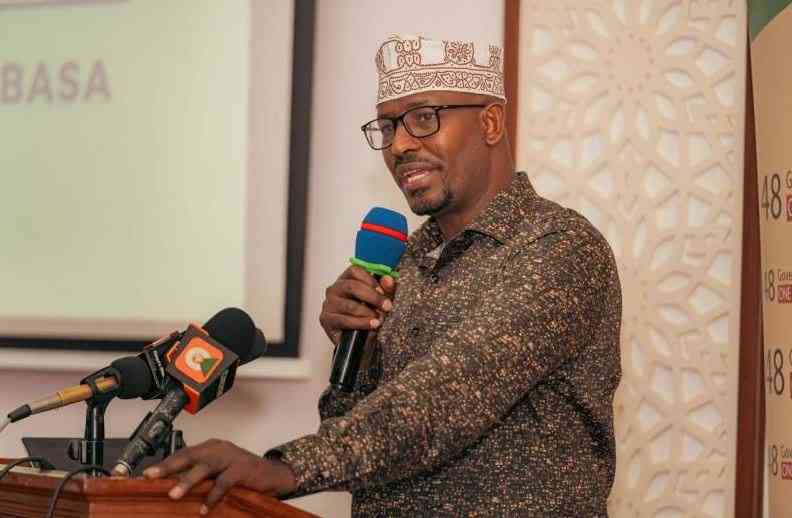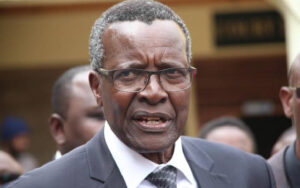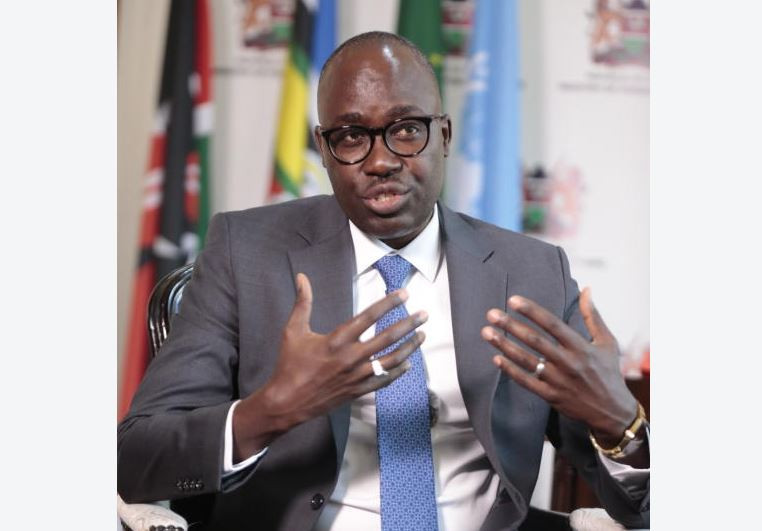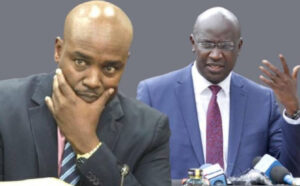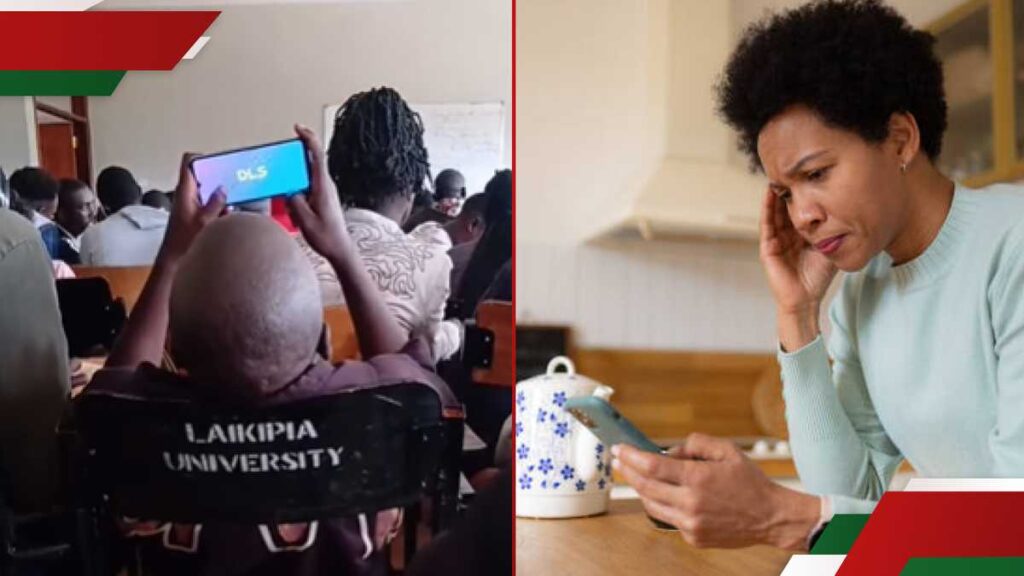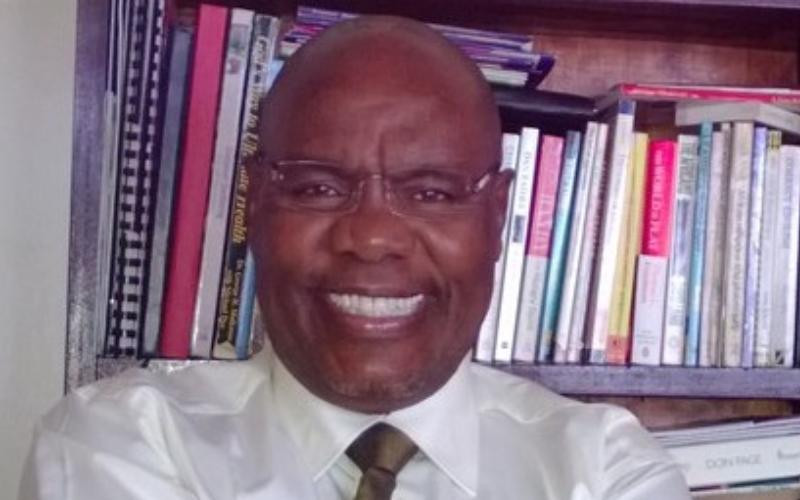The Council of Governors (CoG) has called on the National Treasury to immediately withdraw the mandatory roll‑out of the Electronic Government Procurement System (e‑GP) until proper measures are undertaken.
The governors criticised the implementation as hasty and inconsistent, leading to severe disruptions in counties’ service delivery.
CoG Chairperson Ahmed Abdullahi urged Treasury Cabinet Secretary John Mbadi to recall the directive compelling counties to adopt the e‑GP system until concerns, such as legal alignment, stakeholder consultations, and capacity building, are addressed.
“As governors, we firmly say no to intimidation and threats. A Cabinet Secretary, only recently appointed, has dared to threaten that funds will be withheld. Is he above the Constitution of Kenya? These positions are transient,” said Abdullahi.
“He cannot threaten us with withholding money because we have pointed out that the system he procured-—without clarity on from where, at what cost, or even whether it followed the right process—is not working. If he believes he is above the law, we shall know,” added governor Abdullahi.
This strong stance comes a day after President William Ruto declared he would not back down on implementing the system, defending its role in eliminating corruption and waste during a church service at St Peter’s ACK Cathedral in Siaya.
“There are people who are used to old ways of getting corrupt tenders where government buys a product worth Sh2 at Sh10 because of corrupt procurement there with quotations.
“We are putting this e-procurement in place, so that everybody can know how much an item was bought for and who sold it to the government, and why did the person with Sh2 did not get that tender, but the person who quoted Sh10 did,” Ruto stated.
However, the governors argued that enforcing the system without proper consultation undermines the constitutional independence of county governments under Article 6(2), which requires mutual consultation and cooperation between the two levels of government.
“If it’s not working, it’s not working, and it cannot be forced down our throats. The issues we raise must be addressed. We are two levels of government, both creations of the Constitution,” Abdullahi emphasised.
They insisted that any directive directly affecting service delivery must be preceded by proper engagement, as mandated by the Constitution.
“The Council of Governors emphasises the need for continuous consultation and cooperation between the two levels of government before any circulars or directives that have a direct impact on service delivery can be issued. This is what our Constitution demands,” said Abdullahi.
According to Abdullahi, only three counties participated in the pilot, yet the system was enforced nationally before addressing the gaps identified.
“Lack of adequate sensitisation and training has paralysed procurement processes, particularly in critical sectors such as health,” said the CoG chairperson.
Stay informed. Subscribe to our newsletter
“The e-GP system, as currently implemented, undermines the distinct status of county governments as provided in the Constitution,” he emphasised.
Abdullahi noted that service delivery in counties has been severely disrupted by the new e‑procurement system. In Kiambu County, for example, 123 health facilities are operating with under 20 per cent pharmaceutical supplies due to difficulties using the platform.
“In some counties where farmers are supported with seeds before the rainy season, they now risk losing crops because they cannot purchase seeds,” he added.
The governors clarified that they are not opposed to systems that promote accountability and transparency, but insisted that the challenges hindering implementation must be addressed.
“The issue of accountability is often used against us—but accountability isn’t just for counties; it applies to everyone. You cannot impose a dysfunctional system and halt county operations in the name of transparency,” said Abdullahi.
The government officially launched the e‑GP system on April 7, 2025, with plans to make it the sole platform for all public procurement activities across Ministries, Departments, Agencies (MDAs), and county governments in the 2025/26 financial year.
Treasury CS John Mbadi projected that the system would save up to Sh50 billion annually by curbing fraud and inefficiency. The digital platform is designed to streamline the entire procurement process, from planning and bidding to payments. Suppliers must register, submit bids, and track contract progress online.
Separately, the governors stated that counties will only absorb Universal Health Care (UHC) staff if the Ministry of Health allocates Sh7.7 billion, aligned with Salaries and Remuneration Commission (SRC) guidelines.
They also demanded the Ministry settle Sh9.4 billion in gratuity owed to UHC staff on contract before any transfers to county payrolls. The CoG criticised the Ministry’s portrayal of counties as obstructing UHC staff absorption.
Other grievances included the approval of Health Cadre Career Guidelines by the Public Service Commission (PSC) without involving counties, unresolved union issues, and delayed salary reviews.
“The national government implemented salary reviews in FY 2024/25 for its employees, but county workers were excluded due to lack of funding,” Abdullahi said.






